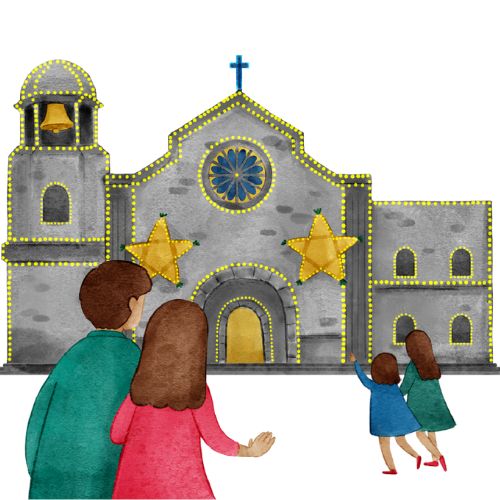From the beginning of time, humans have sought to understand their place in the universe and the existence of a higher power. For many, the concept of God is at the center of this search, representing the ultimate source of meaning, purpose, and morality. Whether viewed as a divine creator, a guiding force, or an all-knowing being, the idea of God has shaped the beliefs and practices of countless individuals and societies throughout history. Despite the many debates and controversies surrounding this topic, one thing remains clear: the question of God continues to inspire deep curiosity, reflection, and awe. In this article, we will explore the concept of God from different perspectives, examining its origins, evolution, and significance in contemporary culture.
The Nature of God
When contemplating the nature of God, many people may envision an all-powerful, all-knowing being who exists beyond the physical realm. However, the concept of God varies widely across different cultures and belief systems, and there is no single definition that can fully capture its complexity.
In some traditions, God is seen as a personal deity who actively intervenes in the world and listens to the prayers of his followers. In others, God is viewed as an impersonal force that permeates all of existence, connecting everything in a web of divine energy. Still, others conceive of God as a manifestation of the universe itself, with all of its beauty, complexity, and mystery.
Despite these differences, there are certain common threads that run through many conceptions of God. For example, many people see God as a source of love, compassion, and moral guidance. Others believe that God represents the ultimate reality or truth that lies at the heart of all existence.
The nature of God is also closely tied to questions about the nature of reality and the human experience. For some, the existence of God provides a sense of purpose and meaning in life, while for others, it raises difficult questions about suffering, evil, and the role of free will in the world.
Regardless of one's beliefs, the nature of God remains a subject of endless fascination and debate, inviting us to explore the deepest mysteries of our existence and the nature of the universe itself.
The Holy Trinity
The concept of the Trinity is one of the most complex and debated ideas in Christian theology. At its core, the Trinity refers to the belief that God is comprised of three distinct persons: the Father, the Son (Jesus Christ), and the Holy Spirit. These three entities are believed to be equal in power and glory, yet distinct in their roles and relationships to one another.
For many Christians, the Trinity represents the ultimate mystery of God's nature, challenging us to embrace the paradoxical nature of a single divine being existing in three distinct forms. The doctrine of the Trinity has played a central role in Christian theology since its development in the early centuries of the church, shaping the beliefs and practices of countless individuals and communities throughout history.
Yet, despite its long-standing place in Christian tradition, the concept of the Trinity continues to generate debate and controversy among scholars and believers alike. Some argue that the idea of the Trinity is not explicitly taught in the Bible, while others contend that it is a logical conclusion based on various scriptural references and theological reflections.
Irrespective of how one views it, the Trinity retains its potency as a representation of the profound and intricate nature of God. It urges us to ponder over the enigmatic manner in which God manifests in our lives and in the world. To numerous Christians, the Trinity is not simply a principle but a profound manifestation of their unwavering belief in the eternal influence and enigma of the divine.
The Attributes of God
When considering the nature of God, one of the key areas of focus is the attributes that are ascribed to God in various religious traditions. These attributes are seen as defining characteristics that reveal the nature and character of God, helping believers to understand and relate to the divine.
Some of the most commonly recognized attributes of God include omniscience, omnipotence, and omnipresence. Omniscience refers to God's all-knowing nature, while omnipotence describes God's all-powerful abilities. Omnipresence, on the other hand, refers to God's ability to be present everywhere at all times.
Other attributes of God include qualities such as love, compassion, justice, and mercy. These attributes are often seen as essential aspects of God's nature, providing a sense of comfort and guidance for those who seek to understand and connect with the divine.
Yet, despite the numerous attributes that are ascribed to God, many people acknowledge that the divine nature cannot be fully comprehended or captured in any finite human language or concept. The mystery and complexity of God's nature remains an ongoing source of contemplation and exploration, inviting us to delve deeper into our own spiritual journeys and to seek a deeper understanding of the divine.
The Providence of God
The concept of God's providence refers to the idea that God is actively involved in the world, guiding and directing events according to a divine plan. This belief is shared by many religious traditions, and is seen as a source of comfort and hope for those who believe in the ultimate goodness and wisdom of God.
Providence is often associated with the idea of divine intervention, with many people believing that God can and does intervene in human affairs to bring about positive outcomes. For example, some might view a miraculous recovery from illness as evidence of God's providential care, while others might see a series of coincidences or lucky breaks as evidence of divine intervention.
At the same time, the concept of God's providence raises difficult questions about the nature of suffering, evil, and human agency. If God is truly in control of everything, then how do we account for the presence of evil and injustice in the world? Does God allow suffering to occur for a higher purpose, or is it the result of human sin and ignorance?
These questions have been the subject of much debate and reflection throughout history, with many theologians and philosophers offering a range of perspectives on the nature of God's providence. Some argue that God's providential plan is unknowable, and that it is our role as human beings to trust in the divine wisdom and act with faith and courage in the face of adversity. Others contend that human beings have a measure of free will, and that our choices and actions can either align with or work against God's providential plan.
The Problem of Evil
The problem of evil is one of the most complex and challenging questions in religious philosophy. It refers to the apparent contradiction between the existence of a loving and all-powerful God, and the presence of evil and suffering in the world.
Many religious traditions posit that God is loving, merciful, and just, and yet the reality of human suffering seems to contradict these attributes. If God is all-powerful and all-loving, why does evil and suffering continue to exist in the world? How do we account for the existence of natural disasters, disease, and human cruelty?
These questions have been the subject of much reflection and debate throughout history, with many different perspectives and theories offered in response. Some argue that the existence of evil is a consequence of human free will, and that God allows us to choose between good and evil as part of a greater plan for our growth and development. Others contend that evil and suffering are the result of natural laws and processes that are beyond human control, and that we must accept them as part of the natural order of things.
Still, others offer more nuanced and complex theories, exploring the relationship between God's omnipotence, omniscience, and omnipresence, and the existence of evil in the world.
Even so, the problem of evil is a powerful reminder of the fragility and complexity of human existence, and the ongoing struggle to find meaning and purpose in the face of adversity. The challenge of reconciling the existence of evil with the idea of a loving and all-powerful God invites us to engage in a deeper exploration of our own beliefs and values, and to seek a greater understanding of the divine nature and purpose.
In Conclusion
The nature of God is a complex and multifaceted concept that has been the subject of much reflection, debate, and exploration throughout history. From the doctrine of the Trinity to the attributes of God and the problem of evil, religious philosophers and theologians have offered a range of perspectives on the divine nature and purpose.
Despite the diversity of beliefs and perspectives, the concept of God remains a powerful and enduring symbol of hope, love, and transcendence for many people around the world. Whether viewed as a loving and merciful deity, an all-powerful and omnipotent force, or a guiding and providential presence, the divine remains a source of inspiration and guidance for those who seek greater meaning and purpose in their lives.
Ultimately, the nature of God invites us to engage in a deeper exploration of our own beliefs and values, and to seek a greater understanding of the divine nature and purpose. By engaging in this process of reflection and self-discovery, we can cultivate a deeper sense of connection and purpose in our lives, and find hope and guidance in the face of life's challenges and uncertainties.



